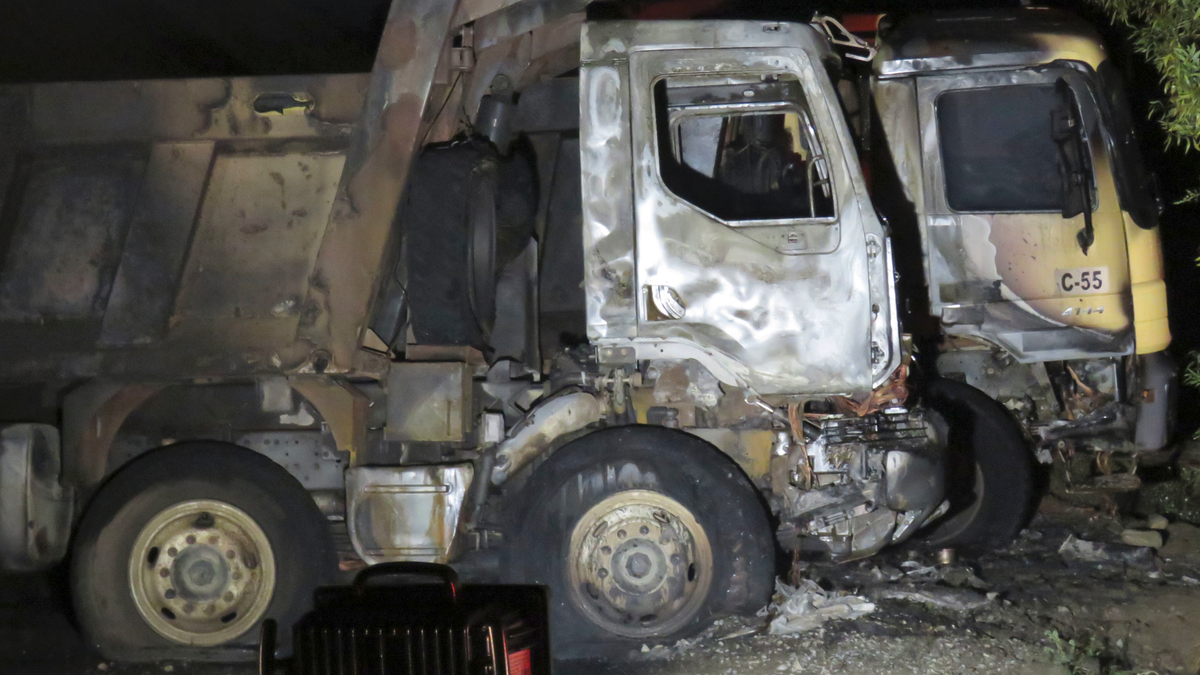
SANTIAGO, Chile – At least 25 trucks were torched in a southern region of Chile that the Mapuche indigenous community claims as its ancestral territory, authorities said Friday.
The Chilean equivalent of the FBI said the trucks were burned in three attacks against logging companies. Armed vandals forced the drivers to descend from their trucks before they set the vehicles on fire in the regions of Bio Bio and Araucania, about 430 miles (700 kilometers) south of the Chilean capital.
Local prosecutor Nelson Moreno said authorities found pamphlets scattered nearby that were signed by a radical Mapuche group. But authorities said that no one claimed the latest attack and no arrests have been made yet.
"We're talking about serious crimes," Interior Minister Mario Fernandez, said. "Both because of the material destruction that they have caused, as well as the level of organization and the use of weapons."
Most Mapuches live in peace, but a radical faction has burned churches and lumber trucks demanding the return of land they say is theirs. Police have also been accused of violent abuses against Chile's largest indigenous group.
"The terrorist attacks in the Araucania and Bio Bio regions make it more necessary than ever to modernize our police force, restructure the national intelligence system and strengthen the coordination between judges and prosecutors," Chilean President-Elect Sebastian Pinera said on Twitter.
The latest attack comes after prosecutors accused some members of the national police force of altering evidence by creating incriminatory chats on WhatsApp that were allegedly introduced into phones seized from eight Mapuche activists who were arrested in September and later released.
The detained Mapuches had been accused of coordinating attacks on churches and trucks as part of the so-called "Hurricane Case," which was closed by Chile's public prosecutor's office for lack of evidence.
The Mapuche resisted the Spanish conquest for 300 years, until military defeats in the late 19th century forced them into Araucania, south of the Bio Bio river, about 340 miles (550 kilometers) south of the capital.
Chile's government then encouraged European immigrants to colonize the area. Today, most of the Mapuche live in poverty on the fringes of timber companies or ranches owned by the descendants of Europeans.







































